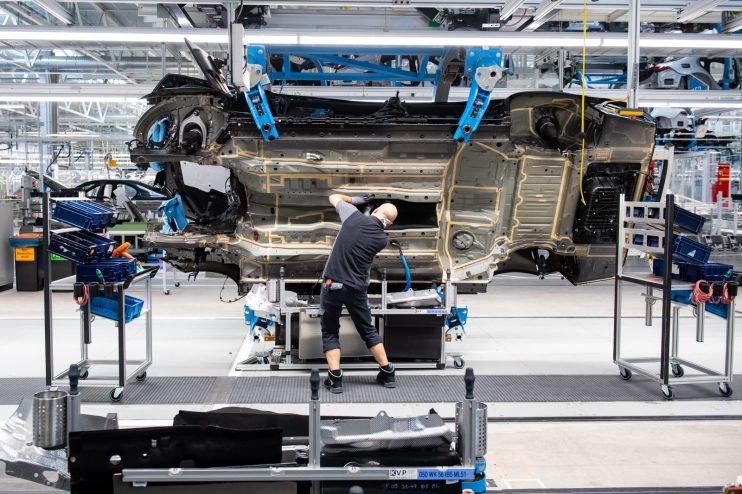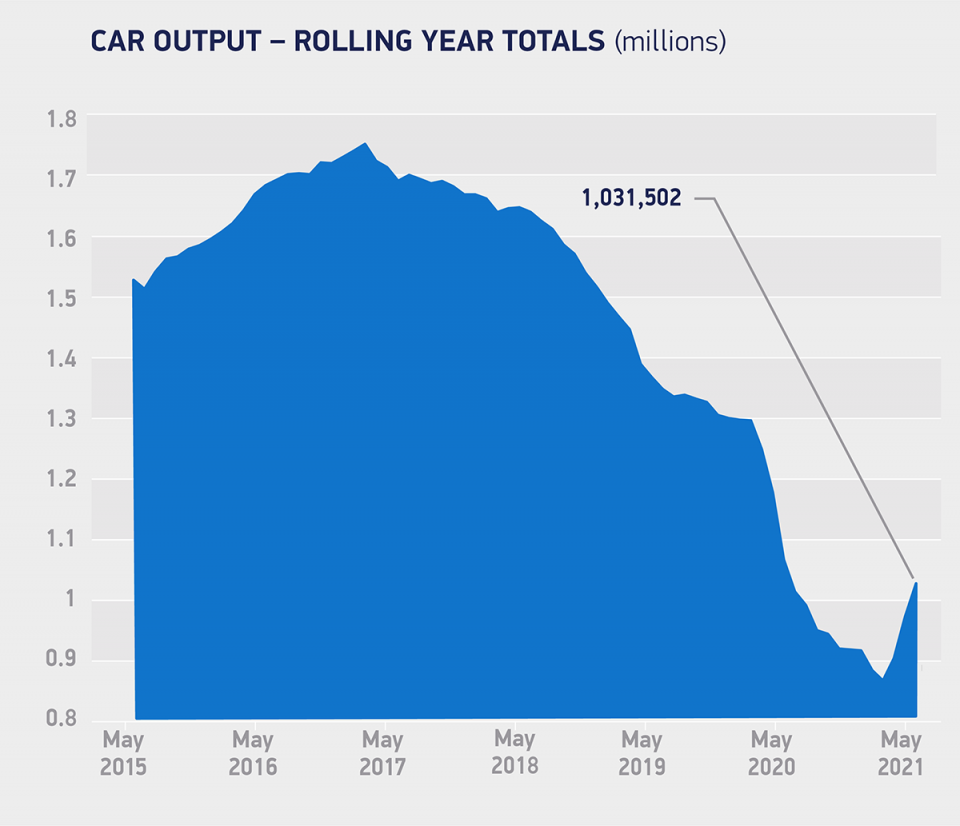Car production still stalled at just half of pre-pandemic levels

The number of cars produced in the UK last month remains mired at nearly half of pre-pandemic levels as the industry grapples with shortages of key components like semi-conductors.
In May, 54,962 cars rolled off production lines, a tenfold improvement on the same month in 2020, when factories were in lockdown.
However, the figure is down 52.6 per cent on 2019 levels, and 58.0 per cent lower than the five-year average, new data from the Society of Motor Manufacturers and Traders (SMMT) showed.
In total this year UK factories have turned out 429,826 cars, up some 105,063 units on last year, but overall output remains down -22.9 per cnt on the same five-month period in 2019.
Around the world carmakers have been forced to cut production targets due to the dearth of semi-conductor chips, which is expected to last into 2022.
And growing pressure on materials such as steel, copper, and oil are also adding to production woes.

Mike Hawes, SMMT chief executive, said, “May’s figures continue to look inflated when compared to last year’s near total standstill of production lines.
“The recovery of car production is, however, still massively challenged here and abroad by global supply shortages, particularly semiconductors.”
Richard Peberdy, UK head of automotive at KPMG UK, said that new blockages at ports in China was also creating new blockages in global supply chains.
The SMMT also revealed that nearly a fifth of all cars made in the UK last month were either battery electric or hybrid plug-in vehicles.
For the year to date, alternative fuel vehicles have made up a similar proportion of the total vehicles made, although the vast majority of these remain hybrid plug-ins, which will be phased out by 2035.
Hawes said that the UK would have to take steps to ensure it remained an attractive destination for firms to build such cars if it was to hit its net zero targets.

“If the UK is to remain competitive, therefore, it must ensure it has a globally attractive policy framework for both vehicle production and the supply chain”, he said.
“Accelerating zero emission car production is part of this package, so while 1 in 5 models made here this year is alternatively fuelled, we need to drive investment in R&D, charging infrastructure and the market to ensure we can deliver the net zero future society demands.”
Peberdy added: “As EV production sustains momentum, it’s encouraging to hear that multiple manufacturers are in talks with the UK government over the construction of gigafactories.
“This won’t impact production in the near term, but their development will be crucial for the future of the UK automotive sector given the prohibitive nature of shipping heavy batteries from overseas.”